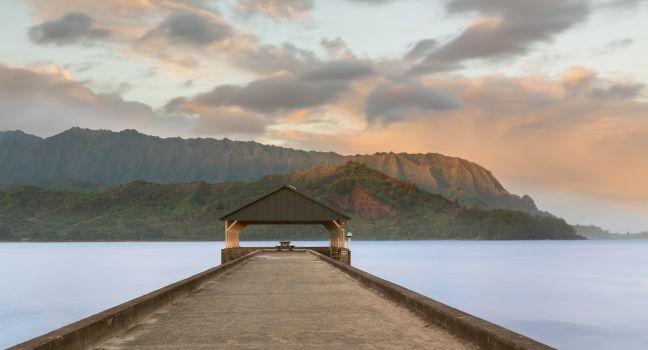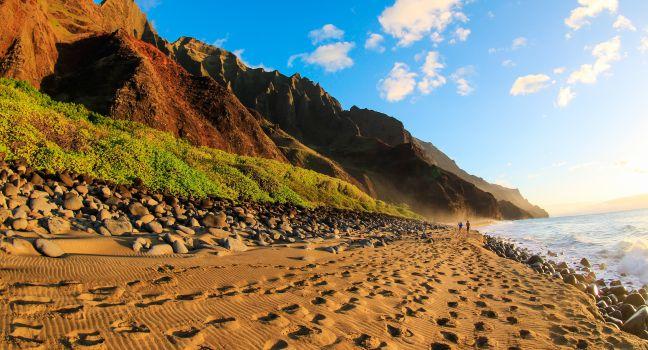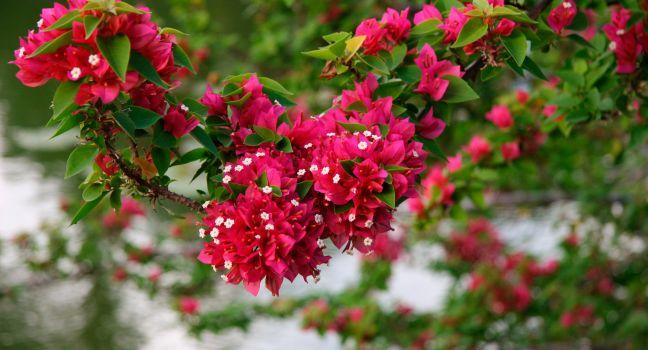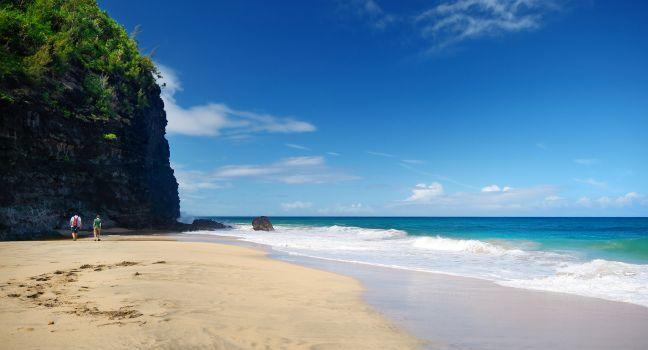Haena Beach Park
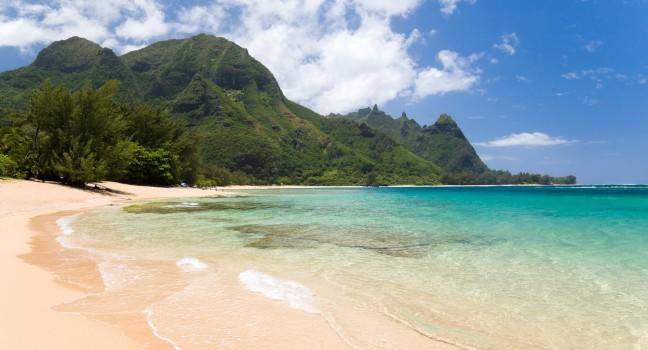
This drive-up beach park favored by campers year-round has a wide bay named Makua bordered by two large reef systems, creating favorable waves for skilled surfers during peak winter conditions. Entering the water can be dangerous in winter when the big swells roll in. In July and August, waters at this same beach are usually as calm as a lake, and throughout summer this is a premier snorkeling site. It's not unusual to find a food vendor parked here, selling sandwiches and drinks out of a converted bread van. Adjacent to this beach is Tunnels Beach.
Parking is extremely limited (the lot typically fills up by 8:30 am), and all vehicles illegally parked outside of designated parking zones are subject to fees and towing. You can also park your car in the shuttle parking lot in Waipa, west of Hanalei Town, and board the North Shore Shuttle for a ride to the beach park ($35 round-trip with seven stops); see gohaena.com for details and reservations. Amenities: food and drink; lifeguards; parking (free); showers; toilets. Best for: snorkeling; surfing; walking.
